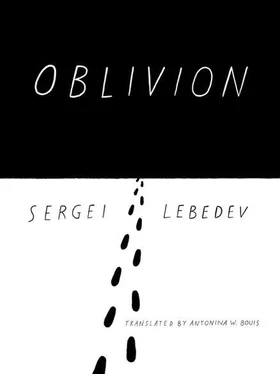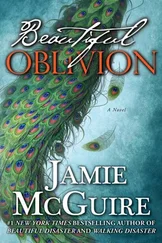I was in the belly of the earth; my brothers lay here, and their imperishability was not the incorruptibility of sainthood, but the absence of death. They did not follow the path of corruption, they merged with the earth without becoming it; for all the world they had vanished without a trace, and even death was not the last message they could send; and that meant that death had not reached its conclusion; the dead remained only with the dead and the living only with the living. Death is not disappearance, it is not an instantaneous transition from presence to absence; a man dies but not the ones around him, they must complete the deceased’s terminal work with grief and bereavement: the services held on the ninth day, the fortieth day are part of the event of death performed by the living. If the living and the dead are separated, this incompletion, this endlessly lasting moment turned to ice stops the flow of time.
I could not climb out of the funnel; the smooth icy walls, licked flat by water, gave me no purchase; I had nothing with which to chop out steps. In my delirium I thought I could make a staircase out of corpses if I could get them out of the embrace of the ice; but then calmness descended—the way out was to dig deeper, not seeking salvation but deepening the hole. I found a broken branch and starting digging in the frozen peat; digging a grave in a grave.
I don’t remember how long this went on; I dug an opening, a well, I dug through coal, wood, rubble, I dug between frozen bodies, going around arms, shoulders, feet; and when my strength was gone, I fell into my well, fell on top of a corpse, and in the cold mist I saw my very distant childhood.
It was night, the middle of the night in autumn. I was on the prow of a boat, all its light was behind me, the passenger cabins and the deckhouse, but here where the boat was just beginning, where the oncoming wind blocked the sound of its machinery, where the only smell was that of the ship’s metal— here was the place that barely belonged to the ship; I moved together with the boat, but just a second ahead of it.
The river air and the darkness I sensed on that spot were different than what you saw from the cabin or the middle of the deck. Back there the light made out of the darkness a mere indicator of time; voices and music gave to the air the role of a waiter who serves up desired sounds; here, where the ship’s prow dug into the night’s flesh, and the night did not reel away but left open shell-like shutters revealing its moist, chilly interior, I looked at the night as if from inside it, while the other people on the boat looked at night from without.
Turning around, I perceived the boat the way the darkness ahead of us perceived it; it was gaining ground, I was retreating; I stood on the deck but all the passengers, all the tables in the restaurant, all the potted palm trees, all the beds in the cabins, all the pieces of hotel soap in the showers were attributes of a world to which I did not belong; imitating one another, losing distinguishing features, people seemed like insects crawling and flying toward the light, but there was no humiliation in that comparison: I also was not human, and blackness streamed between my ribs as if I had drowned in it, and my lungs were filled by the wild, wind-tossed air of the river channel.
I stood on the bow of the boat for so long that had I glanced at a watch I would not have understood the object’s meaning. I no longer noticed whether the boat was still moving or whether there was anything at all behind me; the rare flashes of buoys and house lights on shore seemed to be eons away from the boat. I no longer understood that had I been in my cabin, I would simply be seeing darkness, that is, I would see nothing and not know how close nonexistence comes to people, I would not feel the announcement of death in the dying of color and loss of features; I was completely in the night, wholly open to it.
I thought that the emptiness was crying out; when the wind died down a bit, I heard singing in lullaby tones resembling the sounds of stone Aeolian harps that never reached musicality but expressed the one-dimensional dreariness of being cast in crystal; the singing came from afar, as if through a series of windows that opened and closed; with that singing, sometimes close to a howl and sometimes thinning to the sound of a flute, I felt a primordial horror, the fear of nonbeing, so ancient that the feeling did not know itself, just as an animal does not know it is an animal. Probably this was what the first human who managed to separate himself from the fact of his existence felt, thus dooming himself to know death; a knowledge still unverbalized, piercing the vertebrae that united bones, muscles, and flesh into the body.
Suddenly out of the dancing darkness came something white and motionless in the river channel, resembling a gigantic bone with four joints. Its whiteness was the noble white of marble, which gives statues their aloofness from the world; the darkness tried to blacken it but could not: the white color did not glow but it did not allow other colors to mix with it.
The white pillar rose above the waters, it came closer, and the majestic calm of its lines became clearer. Five tiers rising one above the other, like sails, and now it seemed it was a ship, a tall ship coming toward us. Amid the chaos and discord of the night, amid the darkness that blurred all borders, all lines that destroyed the horizon and mixed up heaven and earth, the white pillar redefined the separation; its hanging levels, the bottom steps of a great staircase, built the tiers of the heavens, and its soaring line set the vertical axis. The three central levels had openings like keyholes; empty niches, the promise of invisible gates ready to open above the spire, at dizzying heights.
The roar of a foggy siren from the oncoming vessel deafened me, submerged my mental dread in the immediacy of physical fright, and I learned where I was. We were sailing over an old flooded town, of which only the bell tower remained, they had forgotten to blow it up and then left it as a marker for vessels; the Aeolian harps were clots of wind that formed under the vaults of the belfry, and the black ear on shore was a communications antenna.
Deep under the ship’s keel, foundations were covered by drifting sands, and drowned leaves floated over former streets; the river was enjoying its own underwater autumn, fish hid in the silt that had settled over the summer, crawfish dug habitats in the dirt of former gardens and during the day cleaned the hulls of boats onshore.
But there were also the white pillar, the white stairs to the invisible gates on high; they existed just as objectively as the bell tower—but the white staircase appeared to me at the bottom of the hole, and when I came to I sensed that the corpse on which I had fallen had been warmed by my body; he had an axe in his hands, the axes had been given to the exiles so they could build, and I could take it out of his dead fingers.
I chopped steps in the ice; I was the first one to get out of that hole, and I sensed that the pit would close and vanish, washed away by high tides; the living and the dead had met and my warmth became their warmth.
The dinghy carried me toward the Artic Ocean. I realized I was mad, I bore the virus of knowledge that should not be passed to the living; something was still not completely understood and without that understanding the knowledge was deadly.
The river grew broader, my wound ached, my temperature rose; madness throbbed in my temples, and I remembered a long-ago meeting with madmen and Grandfather II, when I felt the same fever, the same virus, the same fear.
When I was little we went for walks in the local park; it smelled of sour pea soup; the odor of that soup, wherever you smelled it, meant that a solid fence would soon materialize, sometimes covered with barbed wire; behind it would be a cement block or brick building. That was the situation here: beyond the concrete fence stood the psychiatric hospital.
Читать дальше












